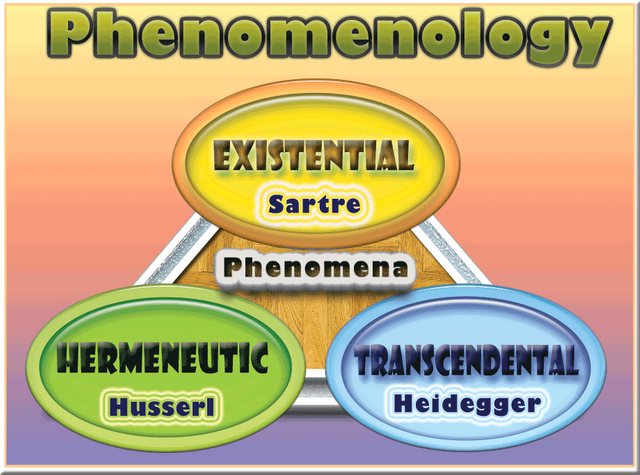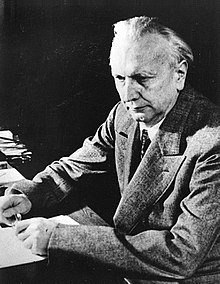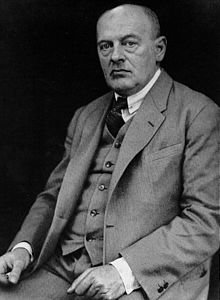Part 2 - Short History of Existentialism: III - Phenomenology - Jaspers, Heidegger and Sheller
The Dialectics of Liberation: Anarchism, Existentialism, and Decentralism.
Part 2 - Short History of Existentialism: III - Phenomenology - Jaspers, Heidegger and Sheller
"What you see in yourself, is not your Self " - charlie777pt
1 - Introduction
"The Enlightenment is the departure from the human of his minority that he himself is guilty. The minority is the inability to use the understanding without the guidance of another...Have the courage to follow your own understanding" - Immanuel Kant in The Perpetual Peace and other Opuscules
Kant in his said that laziness and cowardice were the main causes of minority, because even "free" citizens prefer to follow other idols instead of becoming their own tutors or gurus.
The word Phenomenology comes from the Greek ‘phainein’, meaning - "bring to light", "cause to appear", "reveal", used by Kant constructivist philosophy, seeing the phenomena being constructed by the cognitive subject of the human being with his knowledge.
Phenomenology as well, is centered in the personal moral experience, that the subject knows what it constructs, and the phenomena appear in their consciousness, Every act of experience is always in conjunction with of the meaning of the phenomena.
Phenomenology has a constellation of different philosophies being the most important, the triad of the transcendental, the existential, and the hermeneutic paradigms, to reach reality by individual's descriptions of their lived experiences in relation to the phenomena.
Consciousness in the subject actively forms and give meaning to objects, and man(subject) and the world (objects) are indissociable entities in our Existence.

- - The Transcendental view, tries to convince us that the subject can come outside of ourselves like a third eye, seeing and interpreting the experience with the model of Edmund Husserl, the vortex author of phenomenology emergence.
- - Hermeneutic takes the way of interpreting the experience instead of the descriptive aspect.
- - The Existentialist self-centered focus in the attention in the way the individual feels perceive lived experience.
Now let's travel on some important Phenomenology authors that create the most important ground for the rise of Existentialism.
2 - From Jaspers to Heidegger and Sheller
|
Karl Jaspers was a psychiatrist and philosopher, that was deeply influenced by Kierkegaard and Nietzsche who had opposite positions in regard to the question of Christianity.
He always refused the label of existentialist movement, but in Germany, he was considered the best author of existentialism.
Emotions and rationality are essential to our Being, and we must learn to know them and deal with both which impeds us to use the traditional classic philosophy of rationalism and empiricism.
We are in an era where imperialist wars are justified by flags of different faiths and religious beliefs, disguising the real motives geopolitical and economic clash of cultures for the domination of people by Governments and multinationals.
The philosophy of Karl Jaspers addresses a problem, that was never solved in and I will explain it with his own words:
"Today we are in search of the basis on which human beings from all the various religious traditions could encounter each other in a meaningful way across the entire world, ready to re-appropriate, purify and transform their own historical traditions, but not to abandon them. Such common ground for the (plurality of) faiths could only he clarity of thought, truthfulness and a shared basic knowledge. Only these (three elements) would permit that boundless communication in which the wellsprings of faith could draw each other closer, by virtue of their essential commitment." - Karl Jaspers
He wanted a modern philosophy perspective between Theology and Science with a basis in faith, instead of knowledge, contradicting the Enlightenment, that proclaimed we are born free from the dogmatism of a faith-based in religious authority controlling our understanding of the world and our destiny.
|
Martin Heidegger is a German philosopher, that in his book Being and Time takes us in the quest of our Essence and the meaning of "to Be" with the concept of Dasein, the "being-there" in German, to nominate beings who have a desire and will to be.
He also showed the problem of contemporary alienation, calling “It”, a way of being in an inauthentic Dasein, by following others or fashion that I call a "false-self" of conformism in my words.
"Cowards die many times, before they die" - Shakespeare in Julius Caeser
Heidegger wanted to solve the problem of the unified meaning of Being and tried to find a solution in Husserl ´s psychological phenomenology of the mind.
Heidegger view anthropology as "a fundamental tendency of man's contemporary position with respect to himself and the totality of beings".
He viewed human capable of finding authenticity and access the kingdom of the Being, the permanent source of all things, that today is more difficult to find than ever, in these days modern society with liquid values and no ground space and time for reflections on our spirituality, in a screen-glued-world.
“Making itself intelligible is suicide for philosophy.” - Martin Heidegger
“Human reality” (Dasein) today is inauthentic and everyday life, and we must rely on ourselves when the reality is escaping in front of us(faster than ever) and we can never anticipate and fulfill this gap in relation to the Essence.
The inauthenticity of people in today's communication comes from the constant attempt to evade ourselves consciousness and reality and refuge in a "normed" robot being, with banality leading to the void of the dilution of The Self, and they give their time to the machinery until they find out they run out of time, only when they die.
Our Being, and Being "open to" are the constituent characteristic of man/women like the vortex of all the things, but it is not clear and easy to unveil because it is always under stress by reality repression to conform and hide with our self- deceptive mind.
“The most thought-provoking thing in our thought-provoking time is that we are still not thinking.” - Martin Heidegger
It's difficult to believe, how this enlightened philosopher of personal freedom joined the Nazi Party in Germany before World War II and had several references of anti-semitism, but we can separate this from the teachings we got from Heidegger's philosophy.
|
Scheler's was a conservative and was friends with Heiddeger, that on is turn was influenced by Sören Kierkegaard and Friedrich Nietzsche and became well known for his contribution to Axiology (philosophy of values), and he saw that emotion is oriented from its inception by means of a value.
Max Scheler is not really considered an existentialist, but he showed the Essence is being crushed by modern society, using the frame of Husserl's philosophy and rationalist thought and at the end of his life he almost got into the views of Heidegger's ontology (the study of being)
Being from a Jewish and Protestant origin, in his adolescence, he converted to Christianism, but later he got out of Catholic dogmas and the conception of God but is still mentioned for his Christian ethics.
The contact with Husserl's phenomenology leads him at the end of his life trying to create an anthropological philosophy that he didn't finish.
“When we cannot obtain a thing, we comfort ourselves with the reassuring thought that it is not worth nearly as much as we believed.” - Max Scheler in Ressentiment
For Brentano, Husserl and Sheller, intentionality and consciousness make the world phenomena, and they were the most influential authors of phenomenology, that create grounds for the flourishing of Existentialism, the subject of a lot of the next posts.
The next posts are about the humanistic-existential philosophy of Martin Buber, Hannah Arendt, Paul Tillich, and Rollo May.
"Language is the house of the truth of Being." - Martin Heidegger
Image sources: Wikipedia
The Dialectics of Liberation: Anarchism, Existentialism and Decentralism.
Published Posts:
Introduction to the Dialectics of Liberation: Anarchism, Existentialism and Decentralism
I - Anarchism
- What is Anarchism?
- The History of Anarchism
- Part 1 - Pre-Anarchy - Social Revolution
- Anarchy: Revolution Against The State
- Anarchy Today
- Index and Conclusions of part 1 - Anarchy
II - Existentialism
- What is Existentialism ?
- Part 1 - Unplugged Introduction to Existentialism
- Part 2 - The Short History of Existentialism: I - Early Pre-existentialism
- Part 2 - The Short History of Existentialism: II - Pre-Existentialists
- Part 2 - The Short History of Existentialism: III - Phenomenology - Brentano to Husserl
- Part 2 - The Short History of Existentialism: III - Phenomenology - Jaspers to Sheller - This post
Next posts on the Series:
II - Existentialism(Cont.)
- What is Existentialism ? (Cont.)
- Part 2 - The Short History of Existentialism: IV - Humanistic Existentialists
- Part 2 - The Short History of Existentialism: V - Post -Structuralism
- Part 3 - The Philosophy of Existentialism: I - The Meaning of Nonsense
- Part 4 - The Fear of Freedom of Erich Fromm
- The "Existentialists"
- Part 1 - The Players and the Times
- Part 2 - Jean Paul Sartre - the Man of The 20th Century
- Humanism and Existentialism
- Existentialism and Anarchism
- The Future : Posthumanism, transhumanism and inhumanism
III - Decentralism
- What is Decentralism?
- The Philosophy of Decentralism
- Blockchain and Decentralization
- Anarchism, Existentialism, and Decentralism
IV - Dialectic for Self-Liberation
- The Dialectics of Liberation Congress
- Psychedelics, Libertarian and artistical movements
- Psychoanalysis and Existentialism
- The Anti-psychiatry movement
 2.1 - Karl Jaspers (1883-1969)
2.1 - Karl Jaspers (1883-1969) 2.2 - Martin Heidegger (1889-1976)
2.2 - Martin Heidegger (1889-1976)  2.3 - Max Scheler (1874-1928)
2.3 - Max Scheler (1874-1928)
Congratulations @charlie777pt! You have completed the following achievement on the Steem blockchain and have been rewarded with new badge(s) :
Click here to view your Board of Honor
If you no longer want to receive notifications, reply to this comment with the word
STOPDo not miss the last post from @steemitboard:
Congratulations @charlie777pt! You have completed the following achievement on the Steem blockchain and have been rewarded with new badge(s) :
Click here to view your Board of Honor
If you no longer want to receive notifications, reply to this comment with the word
STOPDo not miss the last post from @steemitboard: